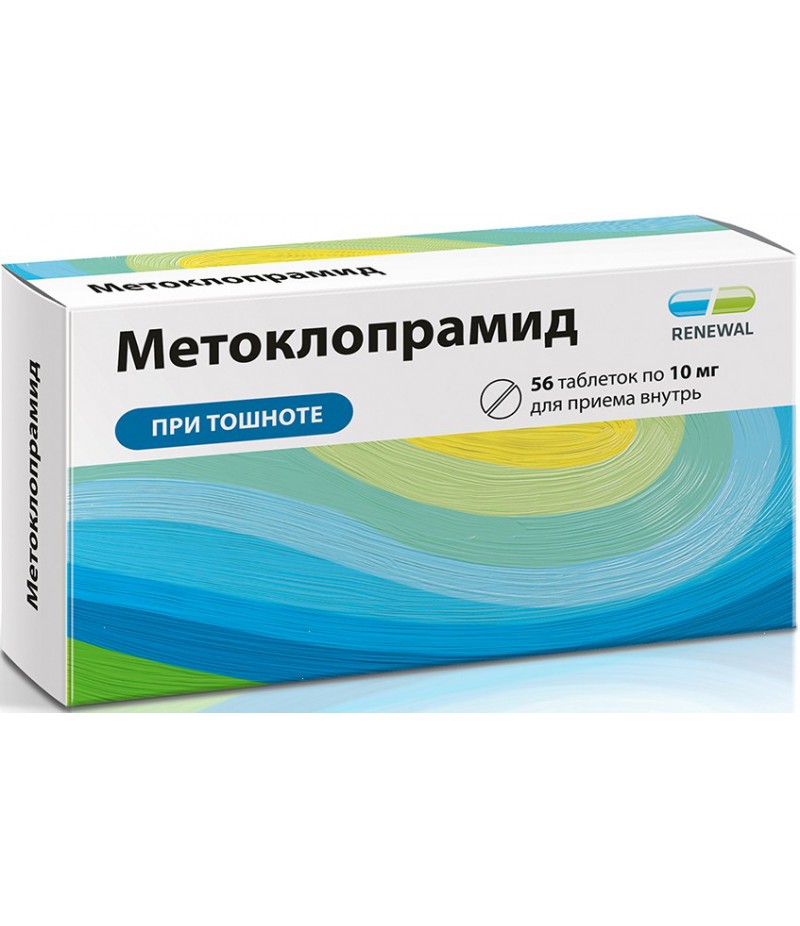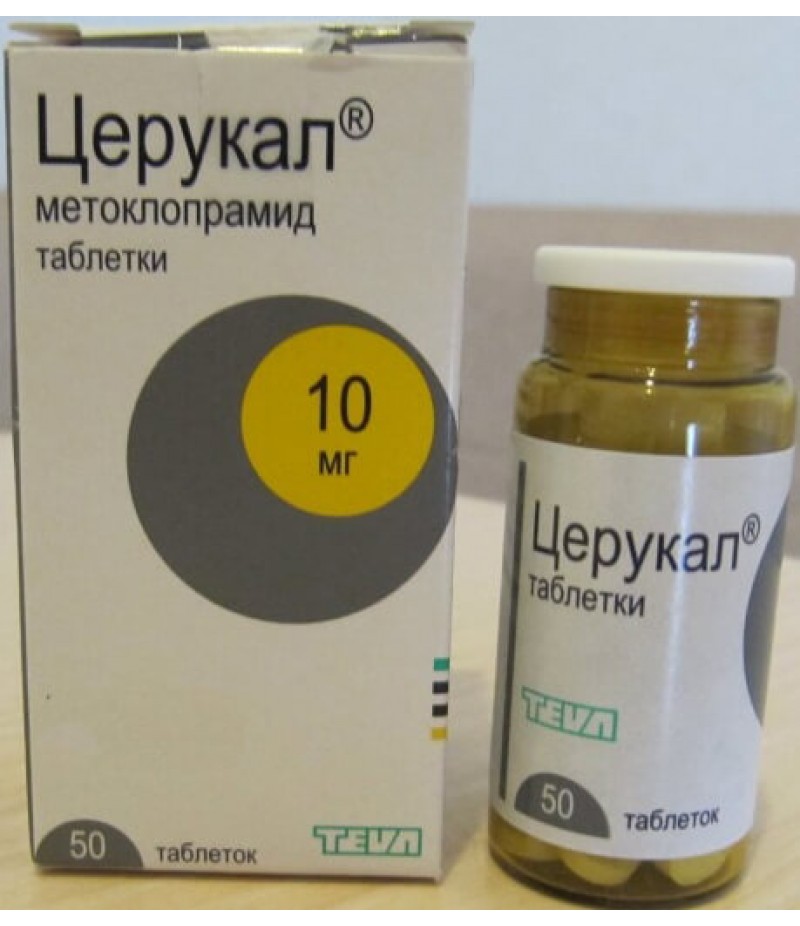Metoclopramide 10mg #56
- $2.27
- 3 or more $2.19
- 5 or more $2.14
- Availability:In Stock
Metoclopramide instructionYou can buy Metoclopramide on this pageTablets Metoclopramide is a representative of the pharmacological group of drugs - antiemetics. They are used in the complex treatment of various pathologies of the ..
Tags: tabs
Metoclopramide instruction
You can buy Metoclopramide on this page
Tablets Metoclopramide is a representative of the pharmacological group of drugs - antiemetics. They are used in the complex treatment of various pathologies of the digestive system, which are accompanied by nausea and vomiting.
Form of issue and composition
Tablets Metoclopramide have a round planocylindrical shape, small size and white color. The main active substance of the drug is Metoclopramide hydrochloride. Its content in one tablet is 10 mg. It also includes auxiliary components, which include:
Purified talcum powder.
Corn starch.
Sodium starch glycolate.
Lactose monohydrate.
Magnesium stearate.
Silicon colloid anhydrous.
Tablets Metoclopramide packaged in a blister for 5 or 10 pieces. Cardboard pack contains 5 or 10 blisters and instruction on the use of the drug.
pharmachologic effect
Metoclopramide hydrochloride has an antiemetic effect due to the implementation of several mechanisms:
Blockade of dopamine D2 receptors in the walls of the hollow organs of the digestive system.
Suppression of serotonin receptors of organs and structures of the digestive tract.
An increase in the threshold of chemoreceptors (chemical receptors) in the trigger zone of the medulla oblongata, responsible for the appearance of a feeling of nausea with the subsequent development of vomiting.
Such mechanisms lead to an increase in the tone of the smooth muscles of the stomach and upper intestinal tract, enhance their peristalsis (wave-like wall movements aimed at pushing the contents into the lower sections), and also prevent reflux (reverse casting) of stomach contents into the esophagus. Also, Metoclopramide tablets increase the synthesis of prolactin and the concentration of the circulating hormone aldosterone, which leads to a temporary water retention in the body.
After taking the tablet Metoclopramide inside, the active substance is quickly and almost completely absorbed into the systemic bloodstream from the intestinal lumen. It is evenly distributed in all tissues of the body, metabolized in the liver to inactive decay products, which are excreted in the urine. Partially Metoclopramide hydrochloride is excreted by the kidneys unchanged. The half-life (the period of time during which half of the entire dose of the drug is excreted from the body) is 4-6 hours.
Indications for use
Receiving tablets Metoclopramide is indicated for various pathological conditions, which are accompanied by the development of nausea and the appearance of vomiting, they include:
Vomiting, nausea, or hiccoughs of various origins, including those associated with disorders in the structures of the central nervous system.
Atony or hypotonia of the hollow structures of the digestive tract (stomach, small intestine) is a marked decrease in the tone of smooth muscles after surgery, receiving or using certain medicines.
Dyskinesia of the bile ducts - a violation of the tone of the hollow structures of the hepatobiliary system (gall bladder, hepatic and bile ducts), which is accompanied by severe nausea and vomiting.
Flatulence - increased gassing in the intestine, provoked by a decrease in its peristaltic movements.
Reflux esophagitis is an inflammation of the esophagus mucosa, which is the result of a reverse casting of acidic gastric contents into it.
Complex therapy of peptic ulcer of the stomach or duodenum.
Also, Metoclopramide tablets are used to enhance intestinal peristalsis, which is necessary for some diagnostic studies (X-ray examination using contrast agents).
Contraindications for use
Reception of tablets Metoclopramide is contraindicated in a number of pathological and physiological conditions of the body, which include:
Bleeding from the structures of the gastrointestinal tract of varying intensity and localization.
Mechanical intestinal obstruction, which is associated with the presence of an obstruction to the passage of food.
Perforation (forming a through hole in the wall of the hollow organ) of the stomach or duodenum.
Prolactin-dependent malignant or benign tumors, the development of which is affected by the level of prolactin in the body.
Extrapyramidal movement disorders and epilepsy (attacks of generalized tonic-clonic seizures, which are often accompanied by loss of consciousness).
Parallel use of anticholinergic drugs.
Glaucoma - increased intraocular pressure.
Hypersensitivity to Metoclopramide hydrochloride or auxiliary components of the drug.
Pregnancy at any time of its course and breastfeeding.
Before starting taking Metoclopramide tablets, you should make sure there are no contraindications to the use of the drug.
Dosing and Administration
Metoclopramide tablets are taken orally regardless of food. They are not chewed and washed down with enough water. The maximum therapeutic dose for one intake is 20 mg, the daily dose should not exceed 60 mg. For children under 6, the recommended dose is 5 mg 1-3 times a day, for children over 6 years - 1 mg per 1 kg of body weight in 1-3 hours during the day.
Side effects
Taking tablets Metoclopramide can lead to the development of unwanted reactions from various organs and systems, which include:
Digestive system - at the beginning of the drug application, development of constipation or diarrhea, less dryness in the mouth, is possible.
Nervous system - the appearance of a feeling of fatigue (especially at the beginning of the drug), drowsiness, headache, depression (a prolonged decline in mood), dizziness, akathisia (a feeling of inner motor anxiety). Children and young people may develop extrapyramidal movement disorders characterized by hyperkinesis (involuntary movements of striated skeletal muscles), spasm of facial muscles, spastic torticollis. With prolonged use of the drug may develop manifestations of Parkinsonism.
Endocrine system - gynecomastia (increased mammary glands in men due to prolactin in the blood), menstrual cycle disorders in women, galactorrhea (appearance of breast milk excretion outside the lactation period).
Blood and red bone marrow - at the beginning of treatment with the drug, the development of agranulocytosis (disappearance of granulocytes from peripheral blood, including neutrophils, eosinophils and basophils) is possible.
Allergic reactions - in rare cases, a skin rash develops.
With the development of side effects, the use of Metoclopramide tablets is not advisable.
special instructions
Before starting taking Metoclopramide tablets, you should carefully read the instructions for the drug, there are a number of specific indications regarding the use of the drug, which include:
The drug is used with caution in the presence of concomitant bronchial asthma, arterial hypertension (increased systemic blood pressure), Parkinson's disease (severe extrapyramidal movement disorders), renal or hepatic insufficiency.
The drug in children is used with caution in dosage appropriate to the age and weight of the child, since it is often possible to develop motor disorders (dyskinesia).
The use of the drug in the elderly increases the risk of extrapyramidal movement disorders.
Tablets Metoclopramide can interact with drugs from other pharmacological groups (especially when combined with anticholinergics).
Against the background of taking the drug may distort the laboratory levels of prolactin and aldosterone in the blood, as well as liver samples.
It is not recommended to perform work associated with the need for increased concentration of attention and speed of psychomotor reactions against the background of taking the drug.
In the pharmacy network, Metoclopramide tablets are dispensed without a prescription. If you have questions or doubts about the use of the drug, you should consult your doctor.
Overdose
If the recommended therapeutic dose of Metoclopramide tablets is significantly exceeded, the manifestations of side effects appear or increase. In this case, the drug is stopped, symptomatic therapy is performed.
Terms and conditions of storage
The shelf life of Metoclopramide tablets is 3 years from the date of manufacture. The drug should be stored in a dark, dry place inaccessible to children at an air temperature of no more than + 25 ° C.


